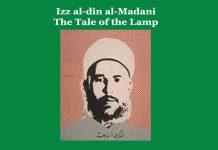Alphonse Daudet | The Last Lesson | An Analytical Study
Alphonse Daudet | The Last Lesson | An Analytical Study
Alphonse Daudet | The Last Lesson | An Analytical Study
‘The Last Lesson’ is a French short story written by Alphonse Daudet (1840-1897). Patriotism is the main theme of the story. The plot of the story is based on the conquest of two provinces: Alsace and Lorraine of France by the Germans in 1870. After taking over the controlling power of the two provinces, the shrewd German plotted to ruin the age-long France culture of the two provinces and they imputed new laws to be enforced in these two provinces. One day an order was sent to the provinces of Alsace and Lorraine from Berlin, the Capital of Germany that only German, not French, would be taught in the schools of their conquered provinces. After getting the order what the teacher of a village school of Alsace, his pupils and the villagers had thought and reacted is portrayed in this short story. It is a very pathetic short story ever written by Alphonse Daudet. The story is written in the first person.
The story begins with a little schoolboy called Franz. He was the type of students of his time. He, like other boys of his age, was generally unwilling to go to school. One day he started for school because he was in dread of getting scolded by the teacher because he did not prepare his lesson and for a moment he thought of running away from home and spending the day out of doors without going to school. The day was very warm. But eventually, he hurried off to school. He had to cross a town to get to his school and when he passed the town hall he saw a crowd of people in front of the bulletin board who seemed to be reading something on the board. He thought about what could be the matter that day. But without making any halt he ran to school. Usually, when the school began there was a great bustle that could be heard from out in the street. But that day he noticed from the street that all were as quiet as Sunday morning. Arriving at school he wondered that the teacher had worn his particular dress which he usually wore on the school inspection days and on the school function days. He become more astonished to see that some village headmen had come to the school and were sitting like the students at the backbenches of the school. While Franz was wondering about that all, suddenly the teacher said to the students,
“My children, this is the last lesson I shall give you. The order has come from Berlin to teach only German in the schools of Alsace and Lorraine. The new master comes tomorrow. This is your last French lesson. I want you to be very attentive.”
The words were like a thunderclap for Franz. He began to repent that they would be deprived of learning their mother tongue. While the boy was thinking all about this, his turn came to recite his lesson. But he could not as he did not prepare his lesson. Though he could not utter his lesson yet the teacher did not scold him. Instead, he said that it was their own fault for not being able to read and write their language well. The teacher said that the parents of the students, the pupils and the teacher himself were responsible for their inability to learn their mother tongue well. Then the teacher taught them grammar, history, and handwriting. And at last, he taught the children the French alphabet. The villagers who had attended the class also uttered the alphabets with the students. An old man by the name of Hauser put his spectacles and holding his primer in both hands spelled the letters with the students. When it was twelve o’clock the teacher stood up very pale, took chalk in his hand, went to the blackboard and wrote as large as he could: VIVE LA FRANCE!” and then gestured to the students with his hands and meant that the school was finished.
Franz and Master Hamel are the main characters – of the story. Franz is a student who is represented as a type of student. Mr. Hamel is also a type but with some individual traits in his personality.
The main tone of the story is pathos. The teacher, Franz and the village people who attended the school that day were very sorry because they had lost their freedom at the hand of the Germans. The activities of the teacher, the villagers and Franz were so pathetic that draw the attention of the readers’ minds.
In narrating the story the author has employed the Subjective Method. The author makes his character Franz to be his spokesman and narrates his story in the first person.
The story, in Structure, is a perfect one. It bears visibly all the stages of a good short story. The exposition of the story is as direct as:
“I started for school very late that morning and was in great dread of a scolding, especially because M. Hamel had said that he would question us on participles, and I did not know the first word about them. For a moment I thought of running away and spending the day out of doors. It was so warm, so bright! The birds were chirping at the edge of the woods, and in the open field back of the sawmill, the Prussian soldiers were drilling. It was so much more tempting than the rule for participles, but I had the strength to resist and hurried off to school.”
The exposition creates curiosity in the story as:
”When I passed the town hall there was a crowd in front of the bulletin board. For the last two years, all our bad news has come from there- the lost battle, the draft, the orders of the commanding officer- and I thought to myself without stopping, “What can be the matter now?”
The complication begins when Franz reached the school and notices the unusual atmosphere in the school. The story gets its climax when the teacher said addressing to the students, “My children, this is the last lesson I shall give you.”
The Setting of the story is consistent with the events and situation. The author gives a good description of his main character along with the environment of his event. The very opening stanza of the story serves the consistent setting of the story.
The Dialogue employed in the story is very logical as he uses them sparingly but all the dialogues have taken his story ahead and unfolded the inner nature and motives of his characters.
The Philosophy of Life is also found in the story. The author has expressed his philosophy of life indirectly that when a nation is enslaved they suffer a lot but as long as they hold fast to their mother tongues it is as if they have the key to their prison. 0 0 0 The Last Lesson
Alphonse Daudet | The Last Lesson | An Analytical Study
Read More: Leo Tolstoy’s The Imp and the Peasant’s Bread-Analytical Study
N. B. This article entitled ‘Alphonse Daudet | The Last Lesson | An Analytical Study’ originally belongs to the book ‘World Short Story Criticism‘ by Menonim Menonimus. Alphonse Daudet | The Last Lesson | An Analytical Study
Books of Literary Criticism by M. Menonimus:
- World Short Story Criticism
- World Poetry Criticism
- World Drama Criticism
- World Novel Criticism
- World Essay Criticism
- Indian English Poetry Criticism
- Indian English Poets and Poetry Chief Features
- Emily Dickinson’s Poetry-A Thematic Study
- Walt Whitman’s Poetry-A Thematic Study
- Critical Essays on English Poetry
- Tawfiq al-Hakim’s Novel: Return of the Spirit-An Analytical Study
- Tawfiq al-Hakim’s Novel: ‘Yawmiyyat Naib Fil Arayaf’-An Analytical Study
- Analytical Studies of Some Arabic Short Stories
- A Brief History of Arabic Literature: Pre-Islamic Period …
Books on Linguistics by M. Menonimus:
- A Brief History of the English Language
- Essays on Linguistics
- My Imageries
- Felicitous Expression: Some Examples
- Learners’ English Dictionary
Related Searches:
- Short Stroy Criticism
- The Indian English Short Story
- Individual and Society …
- ‘Deliverance’ by Premchand Analysis
- Summary of Rabindranath Tagore’s ‘The Exercise Book
- Exercise Book
- The Cabuliwallah
- Atulananda Goswami Biogrpahy
- Lord Halifax’s Ghost Books
- The Romance of a Busy Broker
- The Last Lesson by Alphonse Daudet
- Story Summary’The Last Lesson’ …











